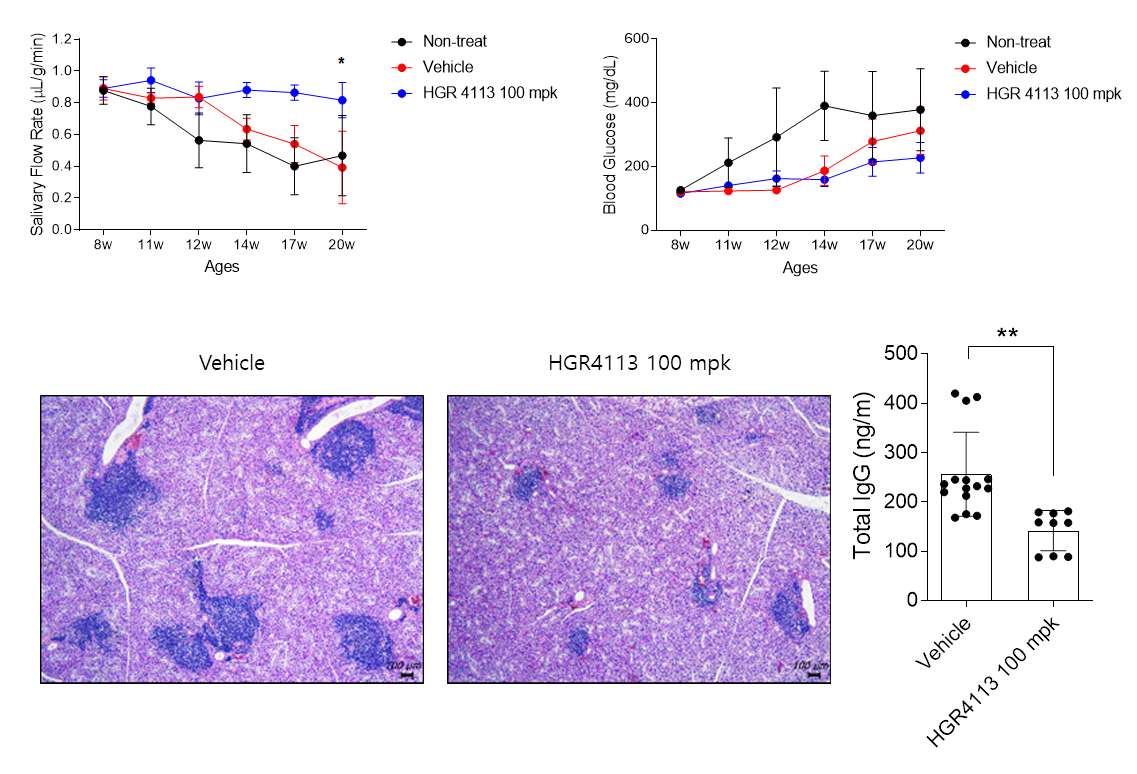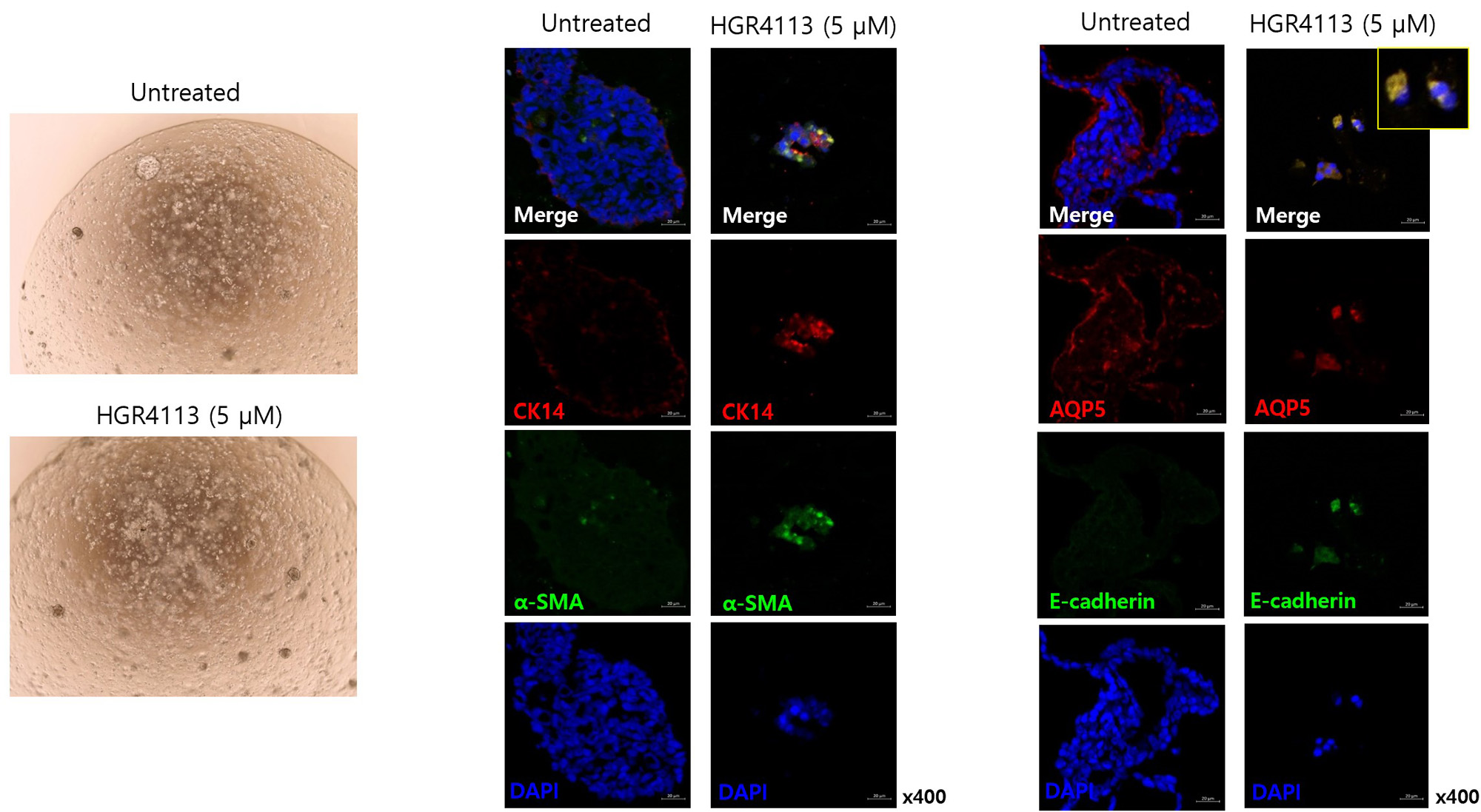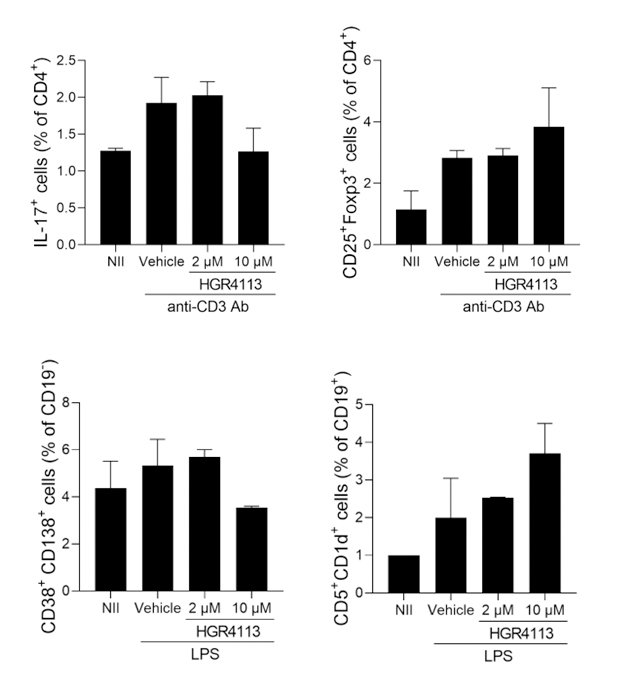Session Information
Date: Monday, November 13, 2023
Title: (1365–1382) Sjögren’s Syndrome – Basic & Clinical Science Poster I
Session Type: Poster Session B
Session Time: 9:00AM-11:00AM
Background/Purpose: Sjogren’s syndrome (SS) is a systemic autoimmune disease characterized by infiltration of lymphocytes into the exocrine gland resulting in progressive lacrimal and salivary estruction and dysfunctional glandular secretion. Metabolic abnormalities of immune cells infiltrated into the salivary gland of patients with SS induce abnormal cell death and hyperactivity, which is involved in the exacerbation of SS. In this study, we investigated the effects of HGR4113, a structural analogue of glabridin under clinical trial for obesity, that promotes mitochondrial function, on the development of Sjogren’s syndrome in non-obese diabetic NOD/ShiLtJ (NOD) mice.
Methods: NOD mice were orally administered 100 mg/kg of HGR4113 daily, and body weight, salivary flow rate, and blood glucose levels were measured every 3 weeks. Infiltration of inflammatory cells and levels of inflammation-related factors in salivary gland were histologically analyzed, and the development of salivary gland tissue organoids was investigated. The populations of various T– and B–cell subtypes in the spleen were assessed by flow cytometry. In vitro formation of salivary gland organoids was investigated by treatment with HGR4113.
Results: Oral administration of HGR4113 improved salivary flow rate and the infiltration of lymphocytes and the level of inflammatory cytokines in salivary gland of NOD mice. HGR4113 lowered the frequencies of splenic IL-17-producing T and B cells, germinal center B cells and plasma cells ex vivo in NOD mice. In addition, organoid formation from salivary gland stem cells of NOD mice administered with HGR4113 increased, and the levels of E-cadherin-14, Aquaporin-5, α-SMA, and Cytokeratin-14 increased. Treatment with HGR4113 also promoted the formation of salivary gland organoids in vitro.
Conclusion: These results show that HGR4113 can improve salivary gland hypofunction by inhibiting lymphocyte infiltration and inflammation in the salivary gland and restoring the damaged salivary gland in SS-Like NOD mice.
To cite this abstract in AMA style:
Kwon E, Park J, Jeong H, Kang H, Choi J, Cho M, Park S. Synthetic Glabridin Derivatives Improves Sjogren’s Syndrome by Inducing Salivary Secretion and Salivary Gland Regeneration [abstract]. Arthritis Rheumatol. 2023; 75 (suppl 9). https://acrabstracts.org/abstract/synthetic-glabridin-derivatives-improves-sjogrens-syndrome-by-inducing-salivary-secretion-and-salivary-gland-regeneration/. Accessed .« Back to ACR Convergence 2023
ACR Meeting Abstracts - https://acrabstracts.org/abstract/synthetic-glabridin-derivatives-improves-sjogrens-syndrome-by-inducing-salivary-secretion-and-salivary-gland-regeneration/



